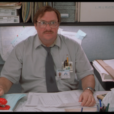A few weeks ago, I had what honestly felt like a perfect day. It was a bright sunny day in December that felt almost stolen from the jaws of our long, cold, gray Portland winters. I woke up with almost no joint pain for the first time in ages and tons of energy. I worked out in the morning then had lunch with a friend outside, making the most of the fleeting sun. After lunch, I took a little walk because I couldn’t bear not to enjoy every minute of the sun and every minute of the gift of a pain-free body. And then I spent time with my lovely family. Five years ago, a day like that would have gone by unnoticed because most days were relatively pain-free with the exceptions of my migraines. And I was often more focused on work than on making the most of a sunny day. Now, a day without pain is rare and in some ways, it’s made me much more aware of and present in moments of pleasure. It’s awful to be in pain of course, but I feel pleasure so much more intensely than I did in a less disabled body. I don’t mean for this to sound like inspiration porn, but I spent so many years ignoring the fact that I had a body to ever appreciate what it could do.
When I first began to embrace slowness in my life and my work, the disability that I experience now was barely a faint whisper. The weird unexplained heart issue I had in late 2018 that left as quickly as it came. The couple times a year I would get unexplained fevers, achy joints, and fatigue for a few days at a time. It was easy to write them off as hypochondria or bad allergies or some weird fluke with no bearing on my future. The heart issue definitely shook me awake from “the trance of unworthiness”, as Tara Brach puts it, and made me realize that if I didn’t have much time left (and even if I did), I’d rather focus my time and energy on my loved ones and my well-being than on career acolades. It made me realize how deeply I had tied my sense of self-worth to my professional achievements and it’s been a pleasure (and a huge challenge) spending the past five years untying those knots and freeing myself bit-by-bit from achievement culture.
Slowing down then was a choice and I recognize the privilege I had in even being able to make it (being in a stable, safe job, even a problematic one, is a gift). At the time, I could easily have chosen to continue prioritizing my career if I’d wanted to. I could have ridden the wave of popularity that came from my writing and speaking about slow librarianship, ignoring the deep irony of making slow librarianship a core part of my identity. I could have stroked my fragile ego and published more, said yes to more speaking requests, and quickly written a book on slow librarianship (that I’ve completed 2 1/2 chapters of in 2 1/2 years, will probably never finish, and will probably end up becoming blog posts eventually). There were certainly moments where I felt that old pull, but it was, again coming from a desire for external approval and recognition. And when I really thought about it, I honestly felt like I was enough and didn’t have to prove anything anymore; a really great way to feel. I don’t regret for a single minute the increased time I’ve had with my family over the past few years. I’ve embraced new hobbies and found so much more joy in my daily existence. It’s almost like I didn’t see or didn’t have access to so much of what was around me when I was grinding.
After having COVID in 2022, everything changed for me, healthwise. I was hit with an evolving melange of awful debilitating symptoms. First dysautonomia, dehydration, and post-exertional malaise for months. Shortly after all that cleared, I was wracked with horrific neck pain that left me in tears and would come and go with no recognizable provocation. Finally, whatever was going on settled into joint pain (in my hands, feet, elbows, and neck) and back stiffness that constantly simmered and would sometimes boil over and leave me unable to even open bottles, chop food for dinner, or unstrap my own bra for days or weeks. The flares would come with other symptoms: sometimes fevers, vertigo, and/or swollen lymph nodes. Those weird symptoms I had back in 2019 now feel like warnings of what was to come though I still have no idea if they were related or whether COVID caused this or just ramped it up (or none of the above!). It’s the not knowing, the ambiguity of it all, that I find most deeply frustrating. Every time I feel like I understand what’s happening, the floor disintegrates beneath my feet.
I’ve seen more doctors over the past year than in any other year of my life. When you have a mysterious illness, especially as a woman, you feel like you have to sell people on its basis in reality. It’s not enough that you’re physically suffering; you also have to also suffer society’s and medicine’s biases. I often felt the sort of shame of a kid putting their thermometer against a lightbulb; like I was trying to get away with something. Maybe it was in my head, as someone who commented on this blog last year suggested (I deleted the comment, thanks asshole). I actually had to stop reading the excellent book The Invisible Kingdom: Reimagining Chronic Illness, because it hit so close to home and left me feeling panicked that I’d never be taken seriously. I was scared to see too many doctors for fear that I’d be seen as “doctor-shopping.” I worried over everything I said to doctors and dressed up for appointments because I wanted to be considered credible. I kept a meticulous spreadsheet of my symptoms and activities and took pictures of anything out of the ordinary, like mouth lesions, swollen hands, and multi-colored fingers, which all ended up being important evidence for my rheumatologist, though all the collecting made me feel like I was again trying to sell someone something that wasn’t real. Eventually, the symptoms began to look like something real — a constellation of connective tissue diseases — and I got a blood test result that indicated that, yes, my immune system is actually attacking me. It’s still not clear which one (or more) condition(s) it is exactly, but my rheumatologist believes me 🙏 and I’m starting on treatment designed to address the three most likely of the possible diagnoses.
After having slowed down by choice, it’s a very different feeling to be slowed down by disability. Some days my pain is pretty minimal and I can do a full day of work and then some. Other days, I’m feverish and in so much pain I can’t sit still or concentrate. No matter what, I have to put my body first because the consequences of not doing that is even more debilitating pain. Exercising significantly decreases my pain, so I’ve worked out almost 2 hours nearly every day during my sabbatical. I’ll have to find a way to work it in when my sabbatical ends in April, because I won’t be able to function without it (I’m kind of terrified about this to be honest). My body calls the shots now. And maybe it’s Pollyanna of me to say this, but there’s something a bit lovely about being driven by my body and its rhythms than by the needs of capitalism. Crip time can be deeply limiting for sure, but it’s also deeply freeing (and would be liberatory for all if embraced by our institutions because we all sometime need to be ruled by the rhythms and limitations of our bodies or bodies we care for). The question is, how well will my job allow me to be ruled by my bodily needs once I’m back from my sabbatical? I’m no longer willing to give all my energy to my job, leaving nothing for my free hours and with more pain than I’d have had otherwise. They don’t pay me nearly enough to sacrifice the entirety of myself on the altar of work.
I’ve been writing this bit-by-bit for a while now and then saw Fobazi Ettarh’s recent post about disability. Fobazi, I’m so deeply sorry for what you are going through and grateful for your honesty, but I’m also immensely proud of the work you’re doing to let go of the notion that you can bootstrap (or pray) your way into greater productivity. It’s one of the hardest things to do when we’re so conditioned to believe we can overcome anything if we just try hard enough or have enough faith (and if we fail to? that’s our fault). The individualism and false meritocracy in our society can really shame people who struggle even when it’s through no fault of their own. You feel like you’ve somehow failed when, really, what in the world could she have done to prevent her illness (or I mine)? I think often the hardest part of being disabled is letting go. Letting go of internalized ableism. Letting go of the visions we had of ourselves and our lives that just don’t fit anymore. Letting go of productivity being the yardstick by which we measure our goodness. Even letting go of self-blame for something that is so far from being our fault. For me, those have not been as much of a struggle as I thought they’d be. While I worried a lot about being taken seriously by doctors and about my illness itself, it didn’t take a lot of mental juggling to slide into a vision of myself as I am now and to let go of doing as much. And it’s made me appreciate the things my body can do in a way I never did before. I’m not going to pretend that all this doesn’t absolutely suck or that I wouldn’t rather have not learned the lesson all this pain has caused me. But I have to live in the reality of my situation and I have a choice about how I inhabit this reality. I’m still not a gratitude journal type by any stretch (barf), but my mental health has actually been good through all of this, to my great surprise. Little did I know five years ago that my embracing slowness and uncoupling my sense of worth from my productivity was setting me up me up so well for my current reality (again, would be thrilled not to have had to learn this!).
I find that I like holding onto things more loosely. When I was too ambitious, too rigidly attach to outcomes and to my professional identity, it was a constant source of pain and stress because so much is outside of our control, no matter how much we want to believe that if we work hard enough, we can make anything happen. And I’m still a work in progress in this respect, always struggling to overcome my programming. Unlike the passage in Elizabeth Bishop’s lovely “One Art”, “the art of losing” can be enormously hard to master in a society likes ours. But that equanimity, that non-attachment, is well worth practicing. Because the world isn’t full of disabled and non-disabled people. It’s really full of people with who will experience disability if they’re fortunate enough to live that long. It might be temporary or it might not happen for a long time, but we’re all in fragile, imperfect human bodies that are slowly or quickly breaking down. And even without disability, we will all lose things that will challenge our notions of who we are. When I chose slowness, I didn’t know that this was where I’d be five years later, but it was a choice that made this easier than it would have been otherwise. And I really do credit the fact that I’m holding onto things more loosely now, and that I’m not trying to win gold stars anymore, with my ability to cope with all of this.
I’m not suggesting people shouldn’t be ambitious about work if they want or care about their jobs. I still care quite a bit about my work and I love the students, faculty, and staff I get to work with. I just don’t make my professional identity or my productivity the cornerstones of how I measure my worth and I refuse to prioritize work over my health anymore. You deserve to prioritize your well-being, even if your place of work doesn’t (and let’s be real, how many managers really do? I’ve never had one who did). I know in helping professions there can be a lot of guilt around putting your well-being first, but you are worthy of that care and consideration. We all are.
Speaking of worker well-being, I forgot to mention this earlier, but I wrote an article for College and Research Libraries News in response to Steven Bell’s terrible article on open offices. Mine is entitled “Neither open nor equitable: The high cost of open offices.” I’ve received more emails about this piece than anything I’ve written before, so clearly others were frustrated by Bell’s original self-congratulatory screed. Our physical needs should matter in the workplace — not only because people should care about humans, but because not doing so has disastrous implications for the overall health and productivity of the organization.






